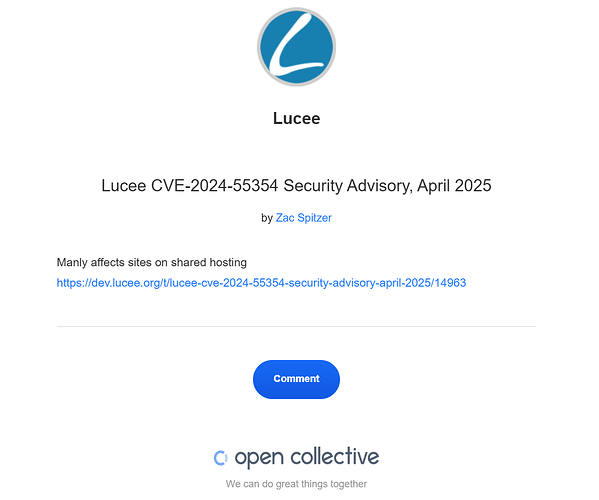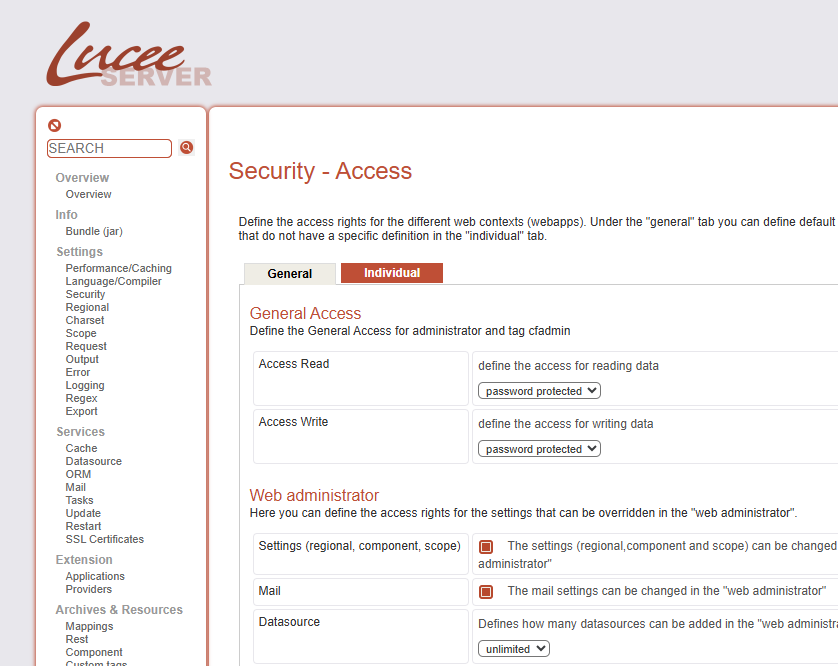Impact
Lucee is vulnerable to a protection mechanism failure that can let an attacker run code that would be expected to be blocked and access resources that would be expected to be protected.
This patch is strongly recommended for multi-tenant and shared hosting environments.
To be clear, this is not a Lucee Admin vulnerability and the majority of Lucee installations will not be exploitable unless an attacker has the ability to write files to the server.
If you are using your own VPS / Server, i.e you have root or Administrator access, it is unlikely you are using shared hosting, if in doubt contact your Hosting provider / System Admin to confirm.
Adobe has also announced a similar ColdFusion CVE today.
Stable Releases
These mitigations listed below are already available since Lucee, 6.1.1.118, as such 6.2.0.321 and the 6.2.1 RCs all support this currently ( the mitigation mechanism was previously added in 6.1.1.114-SNAPSHOT, and 6.2.0.154-SNAPSHOT before this vulnerability was reported)
Patches - 5.4.7.3 LTS
Today we have just published a 5.4.7.3 (Long Term Support) stable release with support for this mitigation.
If you are upgrading from 5.4.7.2, as this is a minor patch, these updates can be safely, immediately applied via the Lucee Server Admin, Under Services → Updates
Or by downloading the .lco core update from https://download.lucee.org/ and copying into your server’s deploy folder,
For older versions, you will need to upgrade to a supported version.
Mitigation
The mitigation can be enabled by setting the following Java System Property or Environment Variable and restarting Lucee
- System property: -Dlucee.compiler.block.bytecode=true
- Environment variable:
LUCEE_COMPILER_BLOCK_BYTECODE=true
If you are using (or suspect you are using) a shared hosting provider, please contact them to confirm they have applied this mitigation, you will not be able to apply this yourself.
These settings will prevent all pre-compiled CFML (Java bytecode) from being run directly as files with a .cfm or .cfc extension.
This will not affect how CFML source code files with a .cfm or .cfc extension are compiled at runtime.
This will be disabled by default in the next major release, Lucee 7.

